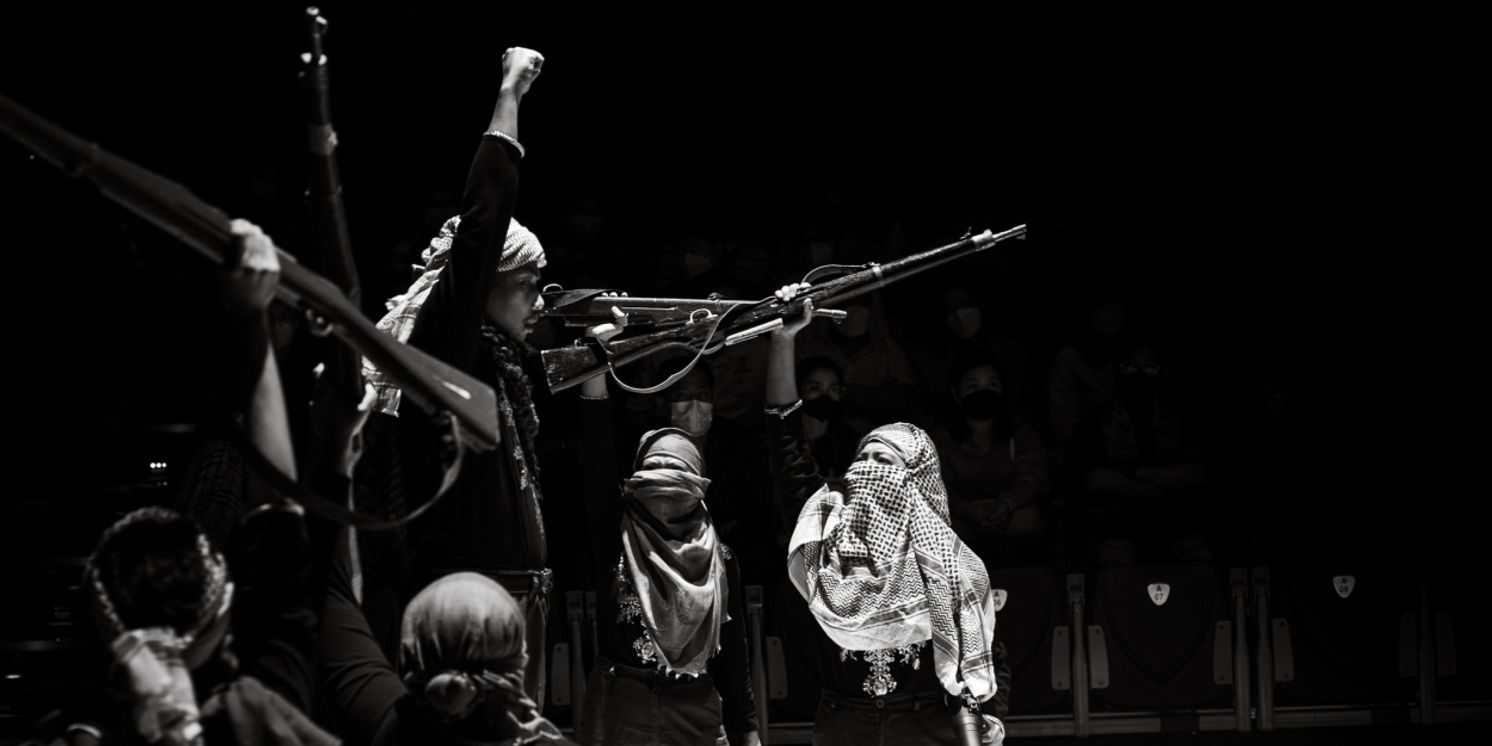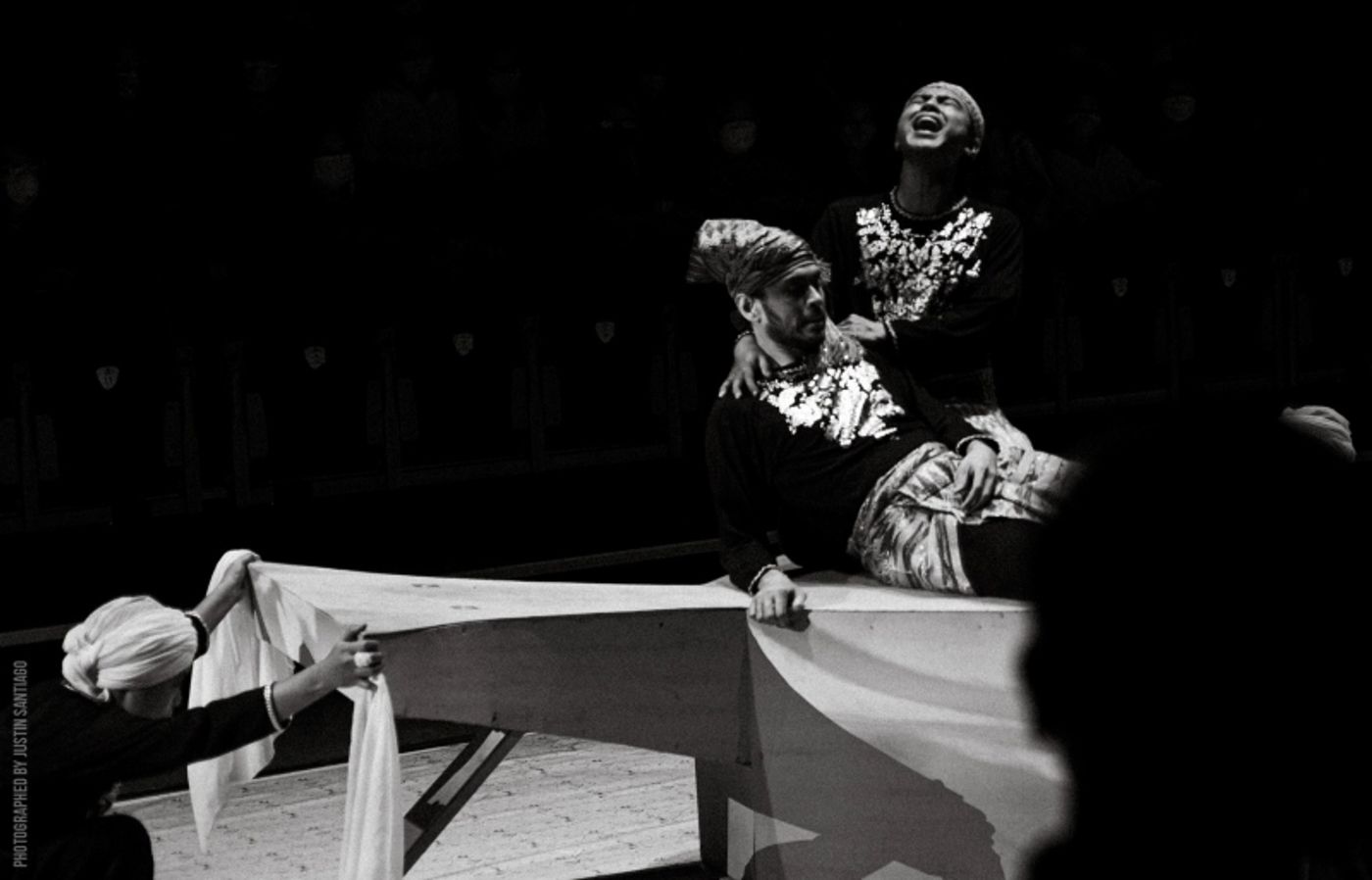Review: Uplifting, Harrowing Tales from Mindanao
Tanghalang Pilipino's ANAK DATU runs now through October 9, 2022.

Manila, Philippines--Robert Audi, a professor of philosophy at the University of Notre Dame, states testimonials and evidence must come together to deem a testimony-based claim genuinely trustworthy. If we take Tanghalang Pilipino's current production of National Artist Abdulmari Imao's "Anak Datu," an original short story-turned-stage play by multi-award-winning playwright Rody Vera, to parallel Mr. Audi's idea, "Anak Datu," in the post-COVID-19 pandemic, is well-anchored on both testimonies and shreds of evidence, whose truthfulness may be hard to bear, even to both the extreme sides of the political spectrum.
To say "Anak Datu" is immensely personal and political is an understatement, and the uninitiated ticket buyer could find it rather deceitful at first. Pre-opening, TP's marketers were masquerading the production as a play with music told in multi-universes than a multi-layered creative protest at the past Marcos Sr. regime.
Nevertheless, the overall experience could be an uncomfortable awakening for the audience. But more importantly, the experience could usher in a new-found empathy towards the Mindanaoans who were (also) victims of Marcos Sr.'s Martial Law. At one point, when the countless Moro victims' names were projected on the walls and floors of the set by Toym Imao, Mr. Imao's eldest son, they immediately sent shivers down our spines. It was a painful yet reflective moment in the theatre--thanks to GA Fallarme's efficacious visual projections and Katsch Katoy's lighting design, which befits the play's socio-political conflicts.
This politically-charged play, almost always a staple in TP productions, is cleverly directed by theater veteran Chris Millado in a thrust theatre space. Mr. Millado's masterful staging delicately aids the audience to traverse--back and forth--not one, not two, but three storylines without hinting hitch or confusion.
One story is about young Karim's call to lead his villagers and the truth about who his birth father was in a pre-colonial Mindanao--Mr. Imao's original short story. The other is about Moro army recruit Jibin Arula's escape from his higher-ups, who mutinied about a dozen military trainees over the non-payment of wages. The last story is about Mr. Imao's family, which recalls teen Toym's fascination over the late '70s Japanese anime "Voltes V." The authoritarian rule at the time cut short the famous anime's televised episodes--due to extreme violence--which left kids and young adults, including Toym, utterly displeased.
 Young actor Carlos Dala (standing) mourns the death of his father, a reformed thief.
Young actor Carlos Dala (standing) mourns the death of his father, a reformed thief.
Of note, Carlos Dala makes an impressive debut on TP's stage, playing the dual roles of the teen Toym and Anak Datu Karim--the title role. The character of Karim, in particular, requires the actor to sing a folk-inspired pop song by Chino Toledo, dance to the Tausug's pangalay, and execute the basic fight stances of the kuntaw silat, choreographed by Hassanain Magarang, comprising genuine movements customary to the Muslim people's culture.
TP young actor Mark Lorenz and esteemed senior actor Nanding Josef bring nuanced life to Jibin's courageous story.
Until his death in 2010, Jibin was the only living testimony to the atrocities against his forthright comrades in what history has referred to as the Jabidah Massacre in 1968, where he survived by his lonesome.
Others in the principal roles Tex Ordonez-de Leon (Tagapagsalaysay ni Putli Loling), Mr. Magarang (Datu Karim), Marco Viana (Mr. Imao), Lhorvie Nuevo (Putli Loling), Antonette Go (Grace de Leon) and the ensemble cast move as one and are committed through and through in telling the Mindanaoans' seldom told story as a people.
All-embracing, Mr. Vera's skillful interweaving of Toym and Jibin's testimonies into his expanded adaptation of "Anak Datu" was inspired by both real-life accounts, which makes a genuinely satisfying, stimulating two hours in the theatre.
Toym and Jibin tell the same cautionary tale, though, where the autocratic's greed, betrayal, and disinterest--or probably fear--of resistance or rebellion still rings true today.
Inconsolably, our Southern brothers and sisters' communal stories, whose weight of truth and death toll in thousands as a valid piece of evidence, were left unsaid to many, especially to us who live in the Philippines' capital.
Power over the powerless lingers.
Justice has been too elusive, while the numbers never lied.
Performed alongside an engaging live band, which plays ethnic instruments, TP's "Anak Datu" runs at the newly-opened Cultural Center of the Philippines' black box theatre, the Tanghalang Ignacio Gimenez, now through October 9, 2022.
Photos Justin Santiago
Reader Reviews

Videos

